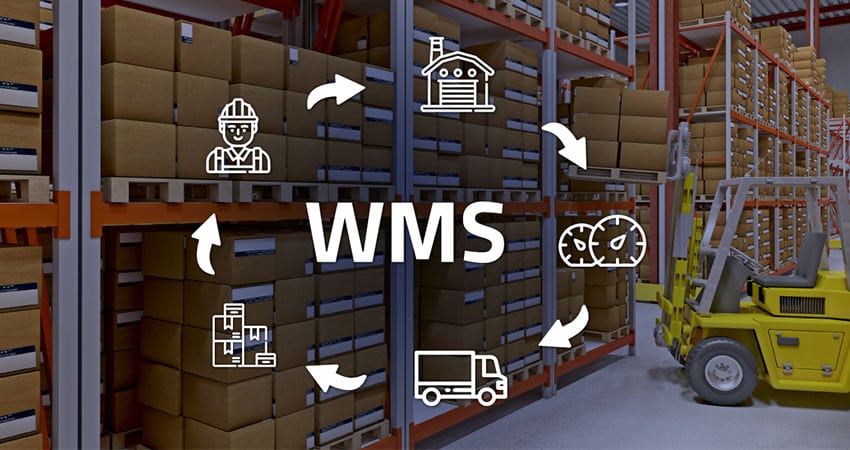Warehouse Management System (WMS) and Why You Need One
A Warehouse Management System (WMS) is a standalone software that automates processes and primarily focuses on managing inventory and operations in a warehouse or a distribution center. This involves management of inventory, workforce, and logistics and also includes analytics reporting. In most cases, WMSs are able to integrate with a company’s additional business applications.
A WMS provides information on the status of the inventory in a warehouse at any given time. For example, the WMS can track real-time data as to where and at what stage inventory is currently in. i.e., goods received, put away, picked, packaged, or delivered. A WMS allows the user to efficiently track inventory and data related to orders such as lot details, expiry dates, serial numbers, and UPCs. Further, the system provides real-time visibility of the business via dashboards and reporting which allows the stakeholders to drive better decision-making.
Why Companies Implement WMS
Companies implement Warehouse Management Systems because there is a need to improve their supply chain management. Such as increasing productivity, reducing costs, and streamlining operations. In addition, the customer experience is imperative to any organization. When order fulfillment is inaccurate or not fulfilled on time, this causes delays, and financial impacts to companies create extended timelines, and results in customer dissatisfaction. This can jeopardize a company’s success and brand, should they lose customer accounts.
WMS Implementation
Understanding the advantages and disadvantages and selecting the right WMS is essential when deciding to implement a warehouse management system. A thorough plan and training program must be put in place to make the most of WMS’s benefits. Create a designated WMS implementation team to guarantee that staff members are properly trained on the new system. This team will be responsible for training all warehouse employees and facilitating the onboarding process. (Project Managers can be beneficial in supporting this type of Project). Designating a team eliminates confusion about roles and responsibilities and will allow you to determine the level of performance you want for the new software.
WMS implementation must be configured for the type of materials stored in the warehouse and how products are placed and moved. The system should support the different requirements of each business unit. The program can support fundamental bin management and sophisticated load and picking logic, including license plate scanning and rules-based data entry. Consider selecting a system that supports license plate scanning to make data entry easier. This feature can help reduce data entry and can also make it easier to identify items.

Top 5 Steps to Make Your WMS Project Successful
- Choose the right WMS for your business
- Understand the user requirements and specifications
- Define roles and responsibilities
- Create an implementation plan
- Finalize the project scope
A WMS implementation must be carefully planned and executed. It requires a new distribution of tasks, thorough evaluation, and a full-fledged action plan. Performing this preliminary work will make the WMS implementation an actual development driver for the company, maximizing the added value and return on investment. The benefits of a WMS implementation are from a technical and operational perspective.
If a WMS is to be implemented successfully, it is critical to include all stakeholders in the design process. Ultimately, a WMS can help warehouse operations improve accuracy and operational efficiency. Therefore, the inputs from Operations and the IT team should be equally significant.
So if you are ready:
- To optimize space and lower operating expenses
- Improve inventory visibility
- Improve labor utilization
- Automate processes
- Have effective shipment management and provide better customer service
- Continuous process improvements
A WMS may be right for your organization and MLC is here to help you achieve these goals and more! Please contact us for a complimentary discussion.
949 222-1202
